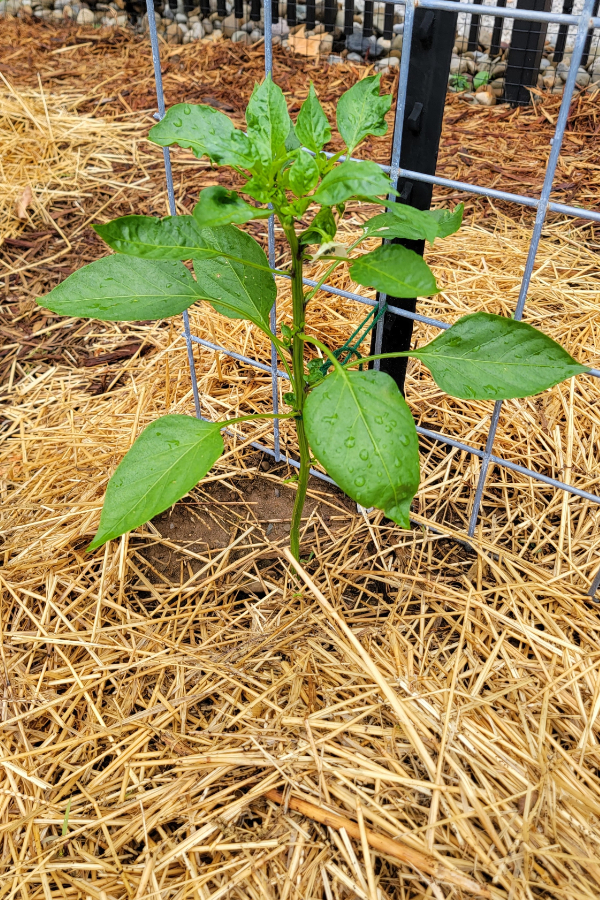Best Fertilizers for Peppers: Improve Development and Flavor with Our Top Picks
Wiki Article
Organic Vs. Synthetic Fertilizers: Which Is Best for Supporting Healthy And Balanced Pepper Plants?
In the world of supporting healthy pepper plants, the choice in between natural and artificial plant foods stands as an essential decision with far-ranging ramifications. While both options aim to give crucial nutrients to sustain plant development, the nuances of their effect on the soil, plant wellness, and the setting trigger an argument that mirrors throughout the horticulture area. Comprehending the distinctive advantages and possible pitfalls of each plant food kind is vital for pepper farmers seeking to maximize their returns while preserving an eco-conscious and lasting method.Benefits of Organic Plant Foods
Organic plant foods provide an environmentally-friendly and lasting technique to nourishing pepper plants, providing essential nutrients without making use of synthetic chemicals. These natural plant foods are stemmed from organic sources such as garden compost, manure, bone meal, and seaweed, promoting dirt wellness and biodiversity. Unlike synthetic fertilizers, organic choices launch nutrients slowly, making certain a balanced and stable supply for pepper plants to grow.One substantial benefit of organic fertilizers is their ability to improve dirt framework and water retention. By boosting dirt health and wellness, natural fertilizers promote beneficial microbial activity, which assists in nutrient uptake by pepper plants. In addition, natural plant foods decrease the risk of chemical run-off, protecting water sources from contamination and safeguarding the setting.
Moreover, organic plant foods add to lasting soil fertility by advertising the growth of advantageous soil microorganisms. These microorganisms assist damage down raw material, releasing nutrients in a type that is quickly available to pepper plants. best fertilizers for peppers. By promoting a healthy and balanced soil environment, organic plant foods sustain lasting pepper cultivation techniques that profit both plants and the atmosphere
Drawbacks of Synthetic Fertilizers
Artificial fertilizers, in comparison to their organic counterparts, position different drawbacks when made use of to nurture pepper plants, influencing both plant wellness and ecological sustainability. One major downside of artificial fertilizers is their tendency to leach nutrients from the soil promptly.In addition, the overuse of artificial plant foods can add to water air pollution. Excess fertilizers not soaked up by plants can get rid of into water bodies, resulting in eutrophication, where algae blooms deplete oxygen levels in the water, hurting water life. Artificial plant foods are usually derived from non-renewable sources, such as fossil fuels, adding to carbon emissions and ecological destruction during their manufacturing.
Nutrient Absorption Comparison
When comparing artificial and natural plant foods in terms of nutrient absorption, organic fertilizers have the advantage of giving an extra balanced and slow-release source of nutrients. Organic fertilizers include a range of macro and trace elements that are not just valuable for the plants but also promote healthy dirt microbial task, which assists in nutrient uptake.In addition, natural plant foods enhance dirt framework and water retention ability, allowing pepper plants to access nutrients a lot more successfully. This better dirt top quality promotes origin growth, making it possible for far better nutrient absorption. Artificial plant foods, although at first improving plant development as a result of their high nutrient focus, might impede long-lasting nutrient absorption by degrading soil wellness with time.
Ecological Influence Factors To Consider

On the various other hand, synthetic plant foods, although often even more right away available and focused to plants, can have harmful results on the atmosphere if not used properly find here (best fertilizers for peppers). Their manufacturing requires high power inputs, leading to greenhouse gas exhausts and adding to environment modification. Moreover, the overflow of excess synthetic fertilizers can infect water resources, leading to eutrophication and hurting aquatic environments.
Ideal Fertilizer Practices for Peppers
To accomplish this, it is crucial to adhere to ideal plant food methods customized to the certain requirements of pepper plants. One vital technique is to do a dirt test before applying any fertilizers.An additional important technique is to feed pepper plants at the correct time. Commonly, peppers profit from obtaining fertilizer at planting and afterwards again when they begin to blossom. Over-fertilizing can cause nutrition discrepancies and harm the plants, so it is vital to adhere to suggested application rates.
Additionally, picking a well balanced plant food with an NPK ratio that suits pepper plants' needs is basic. Organic fertilizers, such as compost or manure, can be excellent selections as they release nutrients gradually and enhance soil structure gradually. Synthetic plant foods can supply a quick nutrient increase when needed. Inevitably, integrating organic and artificial fertilizers judiciously can aid nurture healthy and balanced pepper plants while reducing ecological effect.
Conclusion

Organic fertilizers provide a lasting and environmentally-friendly method to beneficial pepper plants, giving important nutrients without the use of artificial chemicals. Unlike synthetic fertilizers, natural alternatives release nutrients slowly, making sure a balanced and consistent supply for pepper plants to grow.
Synthetic fertilizers, in contrast to their organic equivalents, posture numerous downsides when made use of to nourish pepper plants, impacting both plant health and wellness and environmental sustainability. When contrasting natural and artificial plant foods in terms of nutrient absorption, organic fertilizers have the advantage of supplying an extra well balanced and slow-release resource of nutrients.Furthermore, organic fertilizers enhance soil structure and water retention capacity, allowing pepper plants to gain access to nutrients a lot more effectively.
Report this wiki page